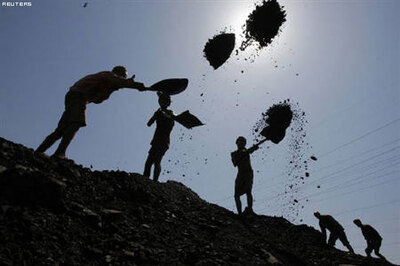
views
Bhopal: Ahead of the advent of monsoon in Madhya Pradesh, the Department of Forest has started a unique practice in their plantation drive, which involves using seed balls to receive maximum returns.
Many attribute the technique to Japan while several others say that the technique was prevalent in ancient Egypt.
Seed balls or earth balls are gaining popularity not only in India but across the world as they are cost effective and can be used in areas that are otherwise considered inaccessible.
The Madhya Pradesh government, however, added some tweaks to this technique.
“We have been witnessing for years that a chunk of seeds scattered by us are either eaten away by birds, some are get blown away by gusty winds or washed away by rainwater. So, the desired results are often not received," Principal Chief Conservator of Forest (Research, extension and public forestry) PC Dubey told News18.
The innovation must have been introduced in India at a smaller scale, but it’s for the first time that this technique is being used at such a large scale, said the forest officer.
“In the last two months, we have prepared 70 lakh seed balls and aim to produce 30 lakh more ahead of the monsoon," said Dubey.
The seed balls are made out of a mixture of vermicompost and soil and can hold five to six seeds at a time. These balls are also dried to prevent germination of seeds.
Once monsoon arrives, the forest department workforce will scatter these balls across the forest area. The damp ground will ensure that these earth balls stick.
“It’s cost-effective and also presumably would help with better returns in plantation," opined Dubey.
The department refrained from buying these seeds from the market, opting for van samitis and community participation to procure the seed balls. To ensure public participation in the drive and raise awareness among kids on seeds and plants, NCC, NSS, Scouts and Guides were included in the preparation of these seed balls.
The department is also using cement-concrete mixers to prepare seed balls. The department has already received an order of 5000 balls from a private company in Indore.
The technique has also brought down the cost of the plantation as each ball is being prepared at a cost of less than a rupee.
Besides, the department has also used seeds of 15 endangered species, including Bel, Rohan, Bija, Baheda, Khamer, Falsa, Saaj, Khirni and Saptkarni, in the plantation drive. To discourage deforestation, the department is excluding plants like Sagaun which remains in demand and instead including medicinal plants in the plantation drive.
In a bid to preserve endemic varieties of mango, the department has used several indigenous species in the plantation drive.
The state department plans to plant five crore plant in Madhya Pradesh this monsoon and has over 6.5 crore saplings stored in 170 nurseries across the state.



















Comments
0 comment